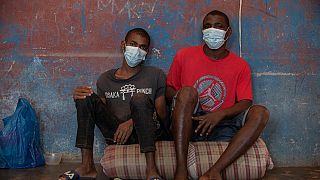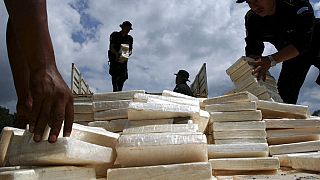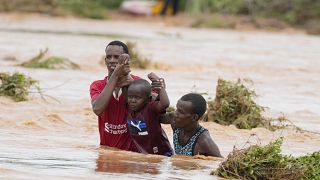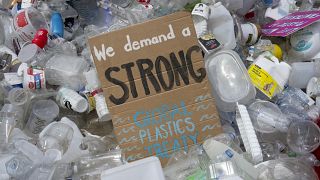Senegal
In Senegal, fishermen are being lured by the dream of a better life in Europe, as over-fishing and the impacts of climate change take their toll. But for many of those who set out in a canoe for the last time, their journey across the Atlantic proves deadly.
Small-scale fishing has long been a mainstay of Senegal's economy and its communities along the Atlantic coast. These days, however, Senegalese fishermen are more often than not returning with empty nets.
Empty nets
Between 2008 and 2018, the country's fishing ports nearly quadrupled, according to the NGO Environmental Justice Foundation, despite more than half of fish stocks in local waters facing collapse.
Much of the catch is being taken in large-scale trawlers from China and elsewhere, which haul in mostly hake, sole, shrimp or octopus to meet the demands of European consumers, or to supply fishmeal or oil producers.
Ababacar Diop, a father of two in his 30s, who himself tried to make the Atlantic crossing to Europe but was stopped by the Senegalese navy in October, says that fishermen have "gotten used to coming back empty-handed".
"A few years ago, we would set out at 6 am and return around 5 or 6 pm," says Diop. "These days we're forced to return at 10 or 11 am" because there's nothing to catch.
No other choice
Fishing provides around 600,000 direct and indirect jobs for Senegal and 3.2 percent of its GDP, according to a 2022 report from the US Department of Agriculture.
Yet, catches by small-scale fishermen in canoes plunged by 58 percent from 2012 to 2019.
With such diminished prospects, it is easy to understand why Senegalese are now alongside Moroccans as the most numerous migrants to reach the Canary Islands this year. Thousands of migrants from various countries have used the Atlantic route to attempt to make the highly dangerous journey from Africa to Europe.
Many of the hopeful migrants never make it, with dozens of Senegalese among the 633 deaths overall this year. Others are stopped by patrols and returned.
For Aliou Ba, head of oceans campaigns for Greenpeace Africa, Senegal's fishermen would not make the choice if they did not have to.
"The crux of the problem is fishing. If we could find solutions so that fishermen could live decently in Senegal, there would be no more illegal migration."











Go to video
Expulsions in Rwanda: genesis of a controversial bill
01:45
Black Chicagoans feel left behind as millions marshaled for migrant crisis
Go to video
Spain: 2 smugglers convicted for the death of 4 Moroccan migrants
01:25
Bronx mosque provides cultural support during Ramadan for migrant influx
01:05
Senegal: Ruling coalition candidate Amadou Ba concedes defeat in presidential vote
00:57
Senegalese call for peace during vote after months of chaotic politics